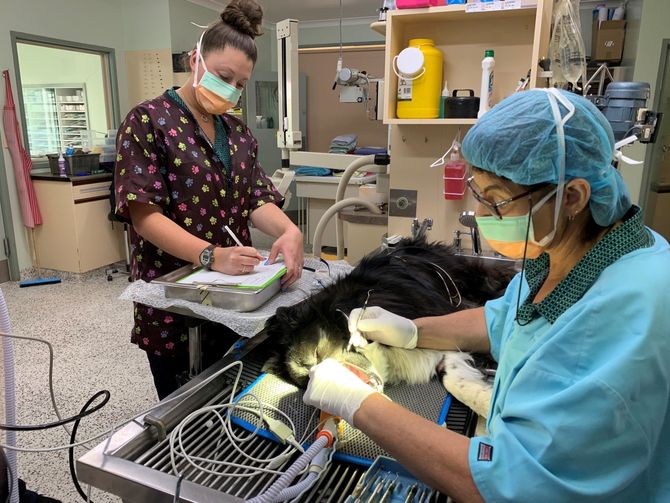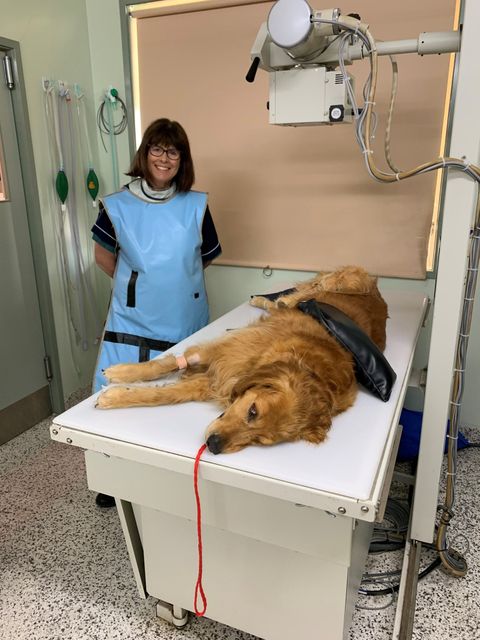Services
Dentistry

Just like humans, pets’ teeth need looking after too!
The health of their teeth and gums has a significant impact on their overall quality of life. Imagine how your mouth would feel, and smell, if you never brushed your teeth. Imagine having a really bad toothache and not being able to tell anyone about it!
Each time your pet visits us for an examination we will grade the health of their teeth.
Grade zero is the score we want for all our patients! This means they have normal, healthy clean teeth and gums.
Grades one & two mean that your pet’s teeth have a build-up of plaque & tartar causing gum disease. It is time to have a dental clean and return their score to zero!
Pets with Grade three or four disease have very significant dental health issues with disease affecting the deeper parts of the tooth and gums. These teeth will be painful and can lead to further health issues. Urgent attention is required to relieve pain and prevent further damage to the teeth. Sometimes teeth are beyond help and require extraction.
We are fully equipped to provide all your pet’s routine dentistry enabling us to perform scaling (removal of plaque & tartar), polishing, extractions and more. Our digital dental x-ray machine means we can get top quality diagnostic x-rays in a very short time to diagnose disease conditions hidden under the gum line.
All adult dogs and cats should have a dental scale and polish performed at least once a year to keep their teeth healthy.
If you have any questions about dental care or professional cleaning please do not hesitate to contact us.
Dental Radiography

Radiography

Our hospital is fully equipped to take digital radiographs (often called X-rays) of your pet. Our veterinarians will discuss your pet’s case and conduct a thorough physical examination to determine if your pet requires radiographs. Radiographs are a very important tool to help us diagnose diseases in animals, particularly for conditions involving bones, the chest or abdomen.
Ultrasonography
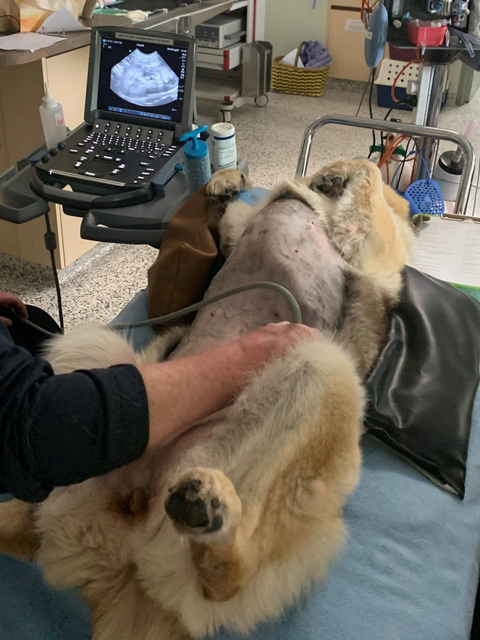
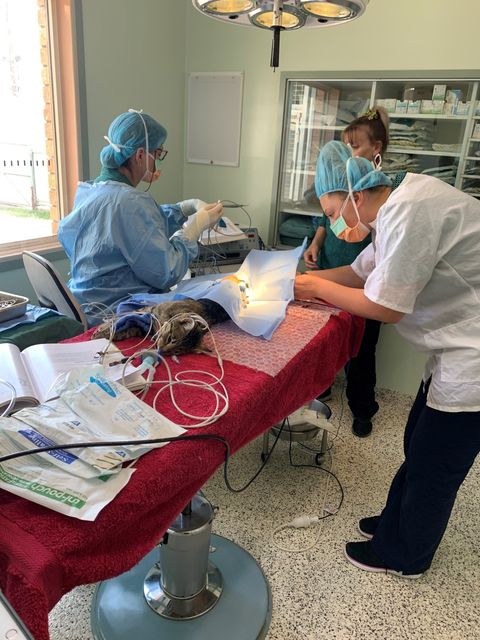
Soft Tissue Surgery
Orthopaedic Surgery
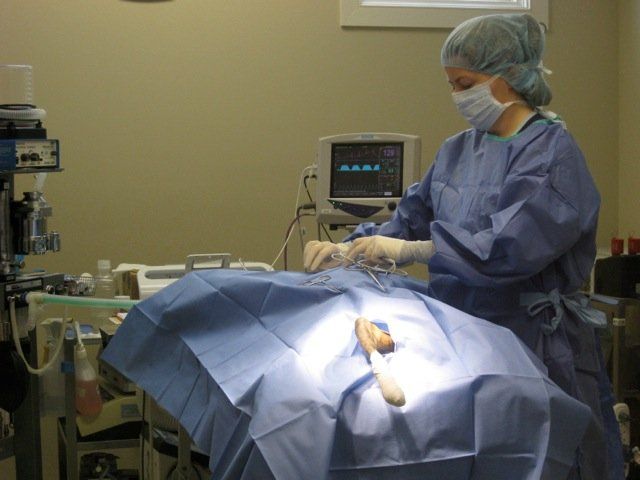

Endoscopy
Video Otoscope

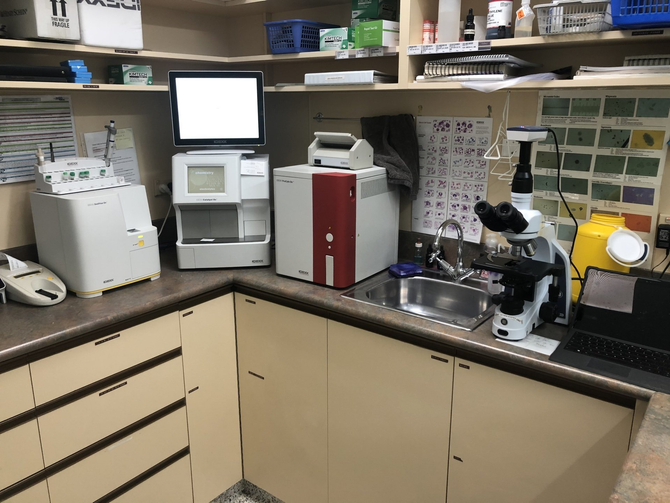
In-House Laboratory

Puppy Preschool

There are many benefits to teaching your puppy to be well behaved at an early age. Young puppies are quite able to learn obedience skills, toileting behaviour and social boundaries. All of these things help make your relationship with your dog more rewarding for the years to come.
We provide an effective Puppy Preschool program for all of the puppies that visit our clinic. With our positive learning techniques you will:
- Develop an understanding of normal puppy behaviour
- Learn how to read your puppy's body language and respond appropriately
- Develop effective techniques for positive behavioural development
- Learn important tips about walking in public areas
- Understand the need for socialising your puppy
- Teach your puppy some important 'do not' lessons
- Understand important boundaries when playing together
- Develop strong bonds between you and your puppy
The most important thing with dog training is to 'start early'. Waiting too long can allow behaviour problems to establish which then require more intensive training to overcome.
It is recommended to commence Puppy Preschool between 8-12 weeks of age. So start today and call us about enrolling your puppy in our Puppy Preschool classes.
Behaviour Training

Our veterinarians will investigate behavioural problems by obtaining a full history and conducting a full examination (sometimes your pet may require blood or urine tests to rule out underlying medical conditions) to accurately diagnose a problem.
Behavioural problems are often the combined effect of many factors, including your pet’s environment, learning or medical factors. Genetics can also predispose your pet to some behaviour; however the expression of those behaviours will depend on your pet’s early socialisation and training. Changes in the environment may contribute to the emergence of behavioural problems. For example, changes in routine, a new member of the household (pet, baby or spouse), moving house, or the loss of a family member or pet can have a dramatic impact on behaviour. Any medical or degenerative changes associated with ageing may cause the pet to be even more sensitive to these environmental changes.
Learning also plays a part in many behavioural problems. Early training and socialisation is essential to have a happy, well-adjusted pet. Punishment of behavioural problems often worsens the situation and it is very important that professional advice is obtained as soon as the problem appears to effectively resolve it.
Positive reinforcement is the preferred method for changing behaviour; however this also needs to be used carefully as it can encourage undesirable behaviour if used incorrectly.
How Are Behavioural Problems Treated?
When it comes to your pet's behaviour, it is extremely important to seek the advice of a qualified veterinarian or animal behaviour specialist. Changing problem behaviour requires commitment on behalf of the whole family, as everyone your pet interacts with will be responsible for encouraging desirable behaviour.
For some problems such as barking, escaping, aggression, or separation anxiety it is beneficial to see the pet in its natural environment, thus a home visit may be appropriate. Some cases may also require medications alongside the new training techniques to get the best outcome. For this and other behavioural problems we advise you contact us to make an appointment with Dr Nicole Timms – Veterinarian, who has undertaken further studies in Animal Behaviour as a special area of interest. Nicole is an accredited Delta Dog Trainer.


Euthanasia
Specialist Referrals
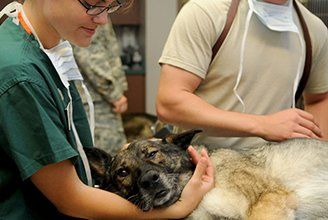
Contact Us
- Mon - Fri
- -
- Saturday
- Appointment only
- Sunday
- Closed




